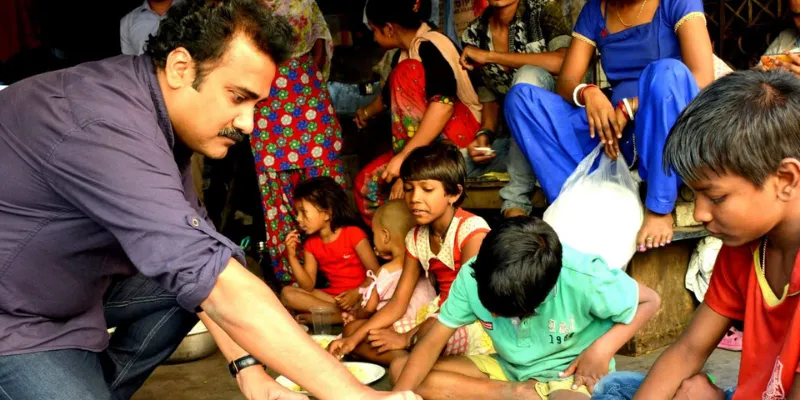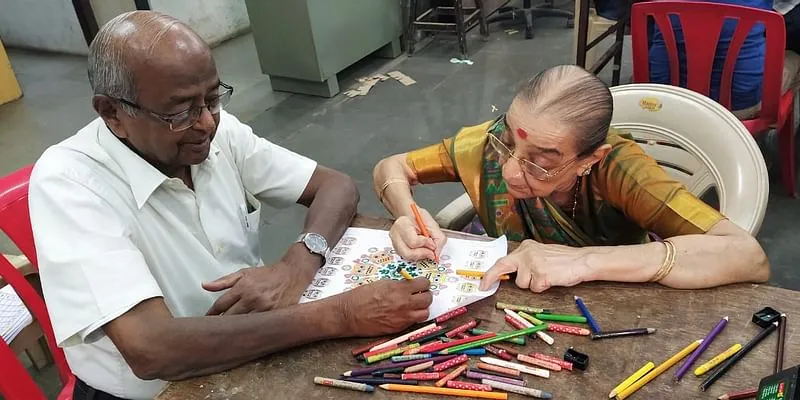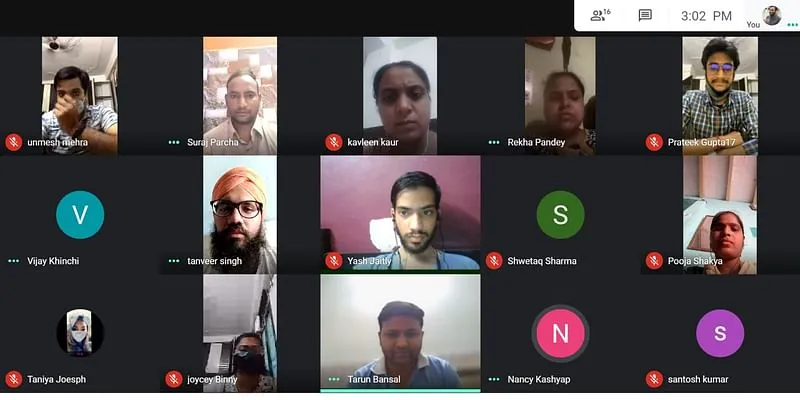From eliminating malnutrition among children to empowering PwDs amidst the pandemic: the top Social Stories of the week
This week, Social Story puts the focus on a man in Bengal who’s ensuring that children don’t go hungry, a trust that’s keeping elders engaged and healthy, and other individuals and organisations doing their bit to give back.
COVID-19 caught the world unaware, but amidst the many troubles and sufferings, a ray of hope emerged: people’s humanity and empathy.
This week, SocialStory shines the spotlight on NGOs and individuals taking that extra step to help people who are in need of aid, relief, and compassion.
Here are the top stories of the week:
43-year-old who is ensuring children in West Bengal do not go hungry

Chandra Sekhar Kundu serving food to kids in Asansol.
Kolkata-based Chandra Sekhar Kundu’s research revealed that despite one-third of the world’s hungry residing in India, a whopping 40 percent of the total food produced in the country is wasted.
According to the Clean India Journal, this amounted to 67 million tonnes every year -the value of which was estimated to be Rs 92,000 crore. Distressed by these statistics, Chandra decided to do his bit to help the hungry.
In 2016, he established a non-governmental organisation, FEED (Food Education and Economic Development) with the objective of eliminating malnutrition among children. Today, he not only satiates the hunger of over a thousand underprivileged children in and around the city, but also provides them with educational and medical support.
Mumbai-based Adhata trust engages senior citizens to keep them healthy and occupied

Art-based therapy for the senior citizens
Adhata Trust, founded by Arun Nanda, focuses on the psychological and social welfare of senior citizens. It engages them in activities they never had the time to do before their retirement.
The Mumbai-based NGO has over 700 members in more than 12 community centres across Mumbai, Navi Mumbai, and Thane. With members of an average age of 70 years, Adhata Trust claims to actively cater to at least 500 people on a daily basis.
Integrating palliative care to improve the quality of life

Rumana Hamied, Managing Trustee, Cipla Palliative Care and Training Centre.
Palliative care is a multidisciplinary approach that caters to the needs of all patients suffering from serious illnesses. It helps patients in managing symptoms while elevating their quality of life.
However, access to palliative care is as low as two to three percent in India, owing to the lack of research, awareness, infrastructure, and resources.
Rumana Hamied, the Managing Trustee of Cipla Foundation, speaks to SocialStory about the role of palliative care in providing comfort to the critically ill, and some of the challenges in administering it.
How Sarthak Educational Trust is empowering PwDs to find jobs during the pandemic

Virtual counselling with Tarun Bansal
Sarthak Educational Trust has been skilling people with disabilities to find jobs based on their capabilities. During the pandemic, the organisation went digital to train more members and has helped more than 2,500 people find jobs.
Through its education programmes, the NGO has rehabilitated more than 1,500 (early intervention) and 425 (inclusive education programme) children with disabilities. Its skill development centres have trained more than 20,000 PwDs in the tourism, hospitality, organised retail, and IT sectors.
Social capital: a fundamental part of the organisation and how to build it

The pandemic brought with it a terrible cost to human life and livelihoods. But it also offered an opportunity to showcase our humanity. Inspiring stories of individuals, communities, and organisations extending support, and collectively fighting the pandemic came up and highlighted a very important aspect of life and business – social capital.
Social capital is the art of doing good and creating a sustainable impact on the way of doing business. It is something that goes beyond making profits and focuses on creating a grassroots-level impact.
Organisations are consciously investing in social capital to empower the marginalised sections of the society and engage with the community in meaningful ways, which, in turn, helps build customer loyalty.
Edited by Teja Lele










